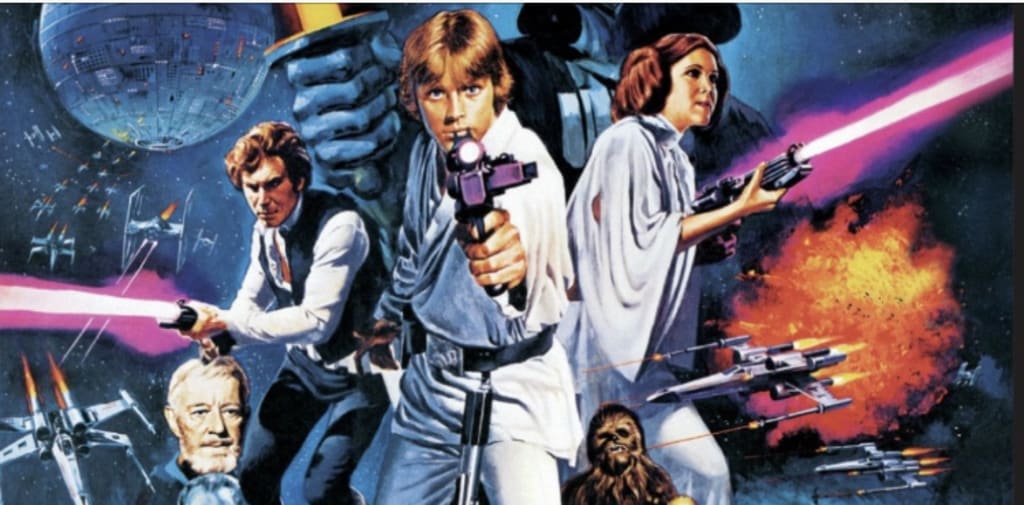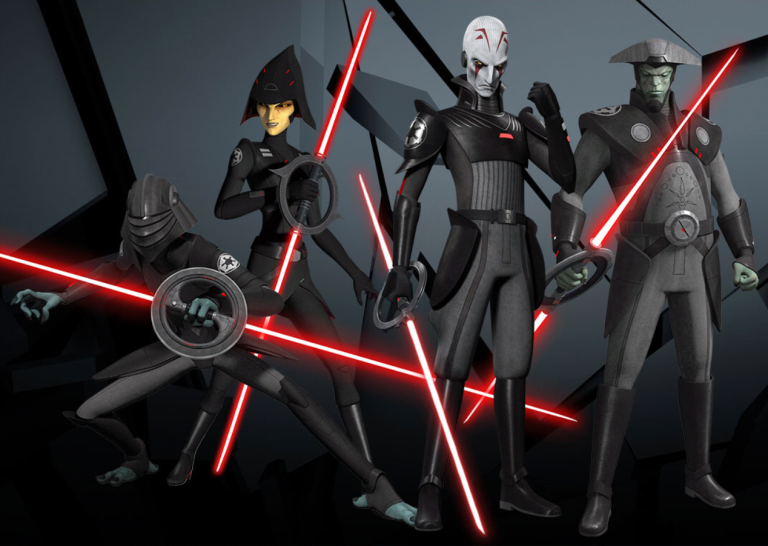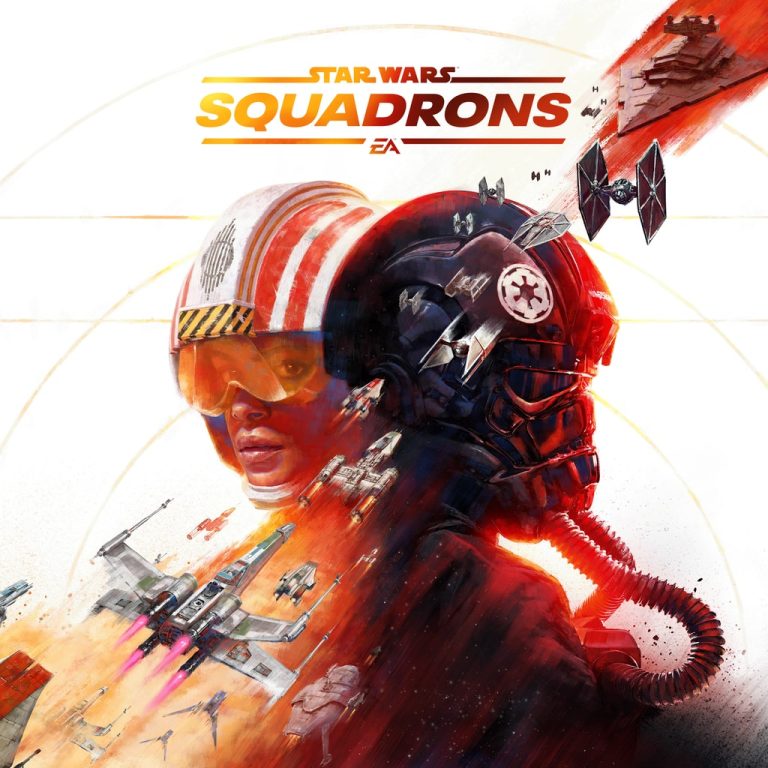How Has The Star Wars Series Impacted The Science Fiction Genre?
Ah, Star Wars. A cultural phenomenon that has captivated audiences for decades. But have you ever stopped to think about the impact it has had on the science fiction genre as a whole? From its groundbreaking special effects to its iconic characters and epic storytelling, the Star Wars series has undoubtedly left a lasting mark on science fiction. So, let’s dive in and explore just how this beloved franchise has shaped the genre we know and love.
When George Lucas first introduced us to a galaxy far, far away in 1977, he revolutionized the way we experience science fiction on screen. With its cutting-edge visual effects and imaginative world-building, Star Wars opened the door for a new era of sci-fi storytelling. Suddenly, filmmakers and writers had a blueprint for creating immersive and visually stunning worlds of their own. This led to a surge of science fiction films and television shows that aimed to capture the same sense of wonder and adventure that Star Wars pioneered. The series also popularized the concept of the “space opera,” a subgenre of science fiction that focuses on epic battles, larger-than-life characters, and sweeping narratives. Whether it’s the battle between the Rebel Alliance and the Empire or the journey of a young Jedi in training, Star Wars has become synonymous with grand, epic storytelling in the science fiction realm.
But the impact of Star Wars extends beyond the silver screen. The franchise has inspired countless authors, artists, and creators across various mediums to explore the possibilities of science fiction. Its influence can be seen in literature, comics, video games, and even music. Star Wars has become a cultural touchstone, and its themes of hope, redemption, and the battle between good and evil have resonated with audiences around the world. It has sparked the imaginations of generations, encouraging them to dream of galaxies far beyond our own and to embrace the limitless possibilities of the science fiction genre.
In conclusion, the Star Wars series has undeniably left an indelible mark on the science fiction genre. Its groundbreaking visual effects, epic storytelling, and memorable characters have inspired countless creators and captured the hearts of fans worldwide. Whether you’re a die-hard Star Wars enthusiast or a casual viewer, it’s hard to deny the impact this beloved franchise has had on the world of science fiction. So, next time you find yourself transported to a galaxy far, far away, remember that it all began with a little film that forever changed the way we perceive science fiction. May the Force be with you, always.
The Star Wars series has had a profound impact on the science fiction genre. With its epic storytelling, groundbreaking special effects, and memorable characters, Star Wars revolutionized the way science fiction is portrayed on the big screen. It introduced new concepts and themes, such as the Force and the battle between good and evil, that have become iconic in the genre. The success of Star Wars also paved the way for other science fiction franchises, inspiring countless filmmakers and storytellers to create their own imaginative worlds.

How has the Star Wars series impacted the science fiction genre?
The Star Wars series has had a profound impact on the science fiction genre, revolutionizing the way stories are told and captivating audiences around the world. From its groundbreaking visual effects to its iconic characters and immersive world-building, Star Wars has left an indelible mark on popular culture. In this article, we will explore the ways in which the Star Wars series has influenced the science fiction genre and why it continues to be a beloved and influential franchise.
The Birth of a Cultural Phenomenon
Star Wars burst onto the scene in 1977 with the release of the first film, later titled “Star Wars: Episode IV – A New Hope.” Directed by George Lucas, the film introduced audiences to a galaxy far, far away, filled with Jedi knights, Sith lords, and epic battles between the forces of good and evil. The film’s success was unprecedented, with its innovative storytelling, dazzling special effects, and memorable characters capturing the imaginations of viewers worldwide.
The impact of Star Wars on the science fiction genre was immediate and far-reaching. It reinvigorated the genre, which had been dominated by more serious and cerebral works, by injecting a sense of adventure, fantasy, and swashbuckling excitement. The film’s success paved the way for a new wave of science fiction storytelling that emphasized spectacle, action, and larger-than-life characters.
The Evolution of Visual Effects
One of the most significant contributions of the Star Wars series to the science fiction genre is the advancement of visual effects. The original Star Wars film revolutionized the industry with its groundbreaking use of practical effects, miniatures, and models. The film’s visual effects team, led by Industrial Light & Magic (ILM), pushed the boundaries of what was possible at the time and set a new standard for the industry.
The success of Star Wars prompted a rapid evolution in visual effects technology. Subsequent films in the series, such as “The Empire Strikes Back” and “Return of the Jedi,” continued to push the envelope, introducing new techniques and technologies to create more immersive and realistic worlds. The advancements made by the Star Wars franchise paved the way for the modern era of visual effects in film and changed the way science fiction stories are brought to life on the big screen.
A New Era of Storytelling
Star Wars also had a profound impact on storytelling in the science fiction genre. The original trilogy introduced audiences to a rich and interconnected universe filled with complex characters and epic storylines. It demonstrated the power of a well-crafted narrative and the importance of creating relatable and memorable characters.
The success of Star Wars inspired a new generation of storytellers to explore the possibilities of science fiction. Filmmakers and authors began to incorporate elements of the Star Wars formula into their own works, emphasizing character-driven narratives, epic conflicts, and themes of hope and redemption. The influence of Star Wars can be seen in countless science fiction stories that followed, from the space opera epics of “Battlestar Galactica” to the hero’s journey of “The Matrix.”
Expanding the Universe
Another significant impact of the Star Wars series on the science fiction genre is its expansive universe. Through films, television shows, books, comics, and video games, Star Wars has created a vast and interconnected mythology that fans can explore and immerse themselves in. This expanded universe has allowed for endless storytelling possibilities, with new characters, planets, and conflicts being introduced with each new installment.
The expanded universe of Star Wars has inspired other franchises to adopt a similar approach, creating rich and expansive worlds for audiences to explore. It has also given rise to a vibrant fan culture, with fans creating their own stories, artwork, and even fan films set within the Star Wars universe. The enduring popularity of the franchise is a testament to the power of world-building and the ability to create a universe that captures the imagination of fans.
In conclusion, the Star Wars series has had a profound impact on the science fiction genre, revolutionizing storytelling, advancing visual effects technology, and inspiring a new generation of storytellers. Its influence can be seen in the way science fiction stories are told and the emphasis on spectacle, adventure, and world-building. The Star Wars universe continues to captivate audiences, and its impact on the genre is likely to endure for generations to come.
Key Takeaways: How has the Star Wars series impacted the science fiction genre?
- The Star Wars series has revolutionized science fiction by introducing a rich and immersive universe filled with memorable characters and epic storytelling.
- It has inspired countless other science fiction works, influencing the way stories are told and the themes explored in the genre.
- Star Wars has popularized the concept of a “space opera,” combining elements of science fiction with fantasy and adventure.
- The series has also had a significant impact on visual effects and technology in filmmaking, pushing the boundaries of what is possible on the big screen.
- Star Wars has created a massive fan community, with dedicated conventions, fan fiction, and cosplay, showing the enduring cultural impact of the franchise.
Frequently Asked Questions
As a beloved franchise that has captivated audiences for decades, the Star Wars series has undeniably made a significant impact on the science fiction genre. From its groundbreaking visual effects to its iconic characters, Star Wars has influenced countless sci-fi creations. Here are five questions and answers exploring how the Star Wars series has shaped the science fiction genre.
1. How has Star Wars revolutionized visual effects in science fiction?
Star Wars revolutionized visual effects in the science fiction genre by introducing groundbreaking techniques that had never been seen before. The series pioneered the use of computer-generated imagery (CGI), allowing for the creation of stunning and realistic worlds, creatures, and spaceships. The seamless integration of CGI with practical effects set a new standard for visual storytelling in sci-fi movies.
Additionally, Star Wars popularized the use of miniatures and models to bring its fantastical universe to life. The intricate detail and craftsmanship showcased in these models added a tangible and immersive quality to the films. The success of Star Wars paved the way for advancements in visual effects technology, influencing countless sci-fi films that followed.
2. How has Star Wars influenced the portrayal of heroes and villains in science fiction?
Star Wars has had a profound impact on the portrayal of heroes and villains in the science fiction genre. The series introduced archetypal characters such as Luke Skywalker, Darth Vader, and Princess Leia, who have become iconic figures in pop culture. These characters showcased complex motivations, inner struggles, and personal growth, bringing a new level of depth and relatability to sci-fi storytelling.
Star Wars also popularized the concept of the “chosen one” narrative, where a seemingly ordinary individual discovers their extraordinary destiny. This trope has become a staple in science fiction, influencing numerous stories across different mediums. The series’ exploration of the duality between good and evil, as exemplified by the conflict between the Jedi and Sith, has also had a lasting impact on how heroes and villains are portrayed in sci-fi.
3. How has Star Wars expanded the scope of worldbuilding in science fiction?
Star Wars is renowned for its expansive and richly detailed universe, which has greatly expanded the scope of worldbuilding in the science fiction genre. The series introduced viewers to a vast array of planets, species, cultures, and technologies, creating a sense of depth and immersion rarely seen before. This level of worldbuilding has inspired countless sci-fi creators to push the boundaries of their own fictional universes.
Furthermore, Star Wars demonstrated the power of interconnected storytelling through its extensive lore and expanded universe. Through books, comics, and animated series, the franchise has delved into the histories and backstories of various characters and locations, creating a cohesive narrative tapestry. This approach has influenced other sci-fi franchises, encouraging them to explore new avenues for storytelling and engage fans on multiple platforms.
4. How has Star Wars impacted the popularity of space opera in science fiction?
Star Wars played a pivotal role in the resurgence of space opera within the science fiction genre. Prior to its release, space opera was considered a niche subgenre, but the success of Star Wars brought it into the mainstream. The series captivated audiences with its epic space battles, grand adventures, and sweeping storylines set against a backdrop of interstellar conflict.
Star Wars demonstrated that space opera could appeal to a wide audience, combining thrilling action with relatable characters and emotional storytelling. Its influence can be seen in subsequent sci-fi franchises, such as Guardians of the Galaxy and The Expanse, which have embraced the space opera format and garnered widespread acclaim.
5. How has Star Wars impacted the merchandising and cultural impact of science fiction?
Star Wars revolutionized the merchandising landscape within the science fiction genre. The series spawned a vast array of merchandise, ranging from action figures and collectibles to clothing and video games. The success of Star Wars merchandise paved the way for the creation of extensive product lines tied to other sci-fi properties, generating significant revenue and expanding the reach of the genre.
Moreover, Star Wars has had a profound cultural impact, permeating various aspects of popular culture. Its memorable characters, catchphrases, and iconic imagery have become ingrained in society. The series has inspired countless fan creations, cosplay, and fan conventions, fostering a vibrant and passionate community of sci-fi enthusiasts. Star Wars’ cultural influence has helped solidify science fiction as an enduring and beloved genre.
Is Star Wars science fiction?
Final Summary: The Impact of Star Wars on the Science Fiction Genre
In a galaxy not so far away, the Star Wars series has left an indelible mark on the science fiction genre. From its groundbreaking special effects to its epic storytelling, Star Wars has captivated audiences worldwide and forever changed the landscape of science fiction. This beloved franchise has not only influenced other films and TV shows, but it has also inspired countless fans and creators to explore the vast possibilities of the genre.
One of the key ways in which Star Wars has impacted the science fiction genre is through its innovative use of technology and visual effects. The original Star Wars film, released in 1977, revolutionized the industry with its groundbreaking special effects, including the use of models, miniatures, and computer-generated imagery. This set a new standard for visual storytelling in science fiction and paved the way for future films to push the boundaries of what was possible. Star Wars also introduced iconic designs, such as the Millennium Falcon and lightsabers, which have become synonymous with the genre.
Furthermore, Star Wars has had a profound influence on the narrative and thematic elements of science fiction. The epic battle between good and evil, the exploration of otherworldly worlds, and the concept of the hero’s journey are all recurring themes in the Star Wars series. These themes have not only shaped the storytelling in science fiction but have also become ingrained in popular culture. The concept of the Force, for instance, has become a widely recognized and referenced element in science fiction and beyond.
In conclusion, the Star Wars series has had a transformative impact on the science fiction genre. Its innovative use of technology, memorable characters, and timeless storytelling have inspired a new generation of filmmakers and storytellers. Whether it’s through its iconic visual effects or its enduring themes, Star Wars continues to shape and redefine the boundaries of science fiction, leaving an indelible mark on the genre for years to come. May the Force be with us as we explore the ever-expanding universe of science fiction influenced by the galaxy far, far away.






